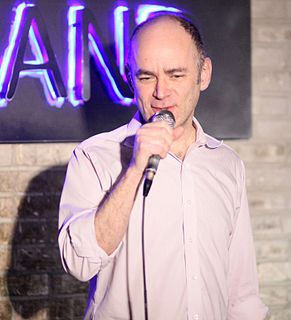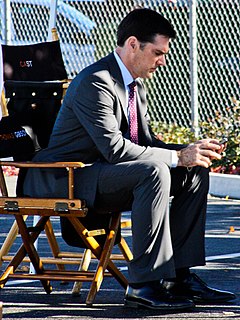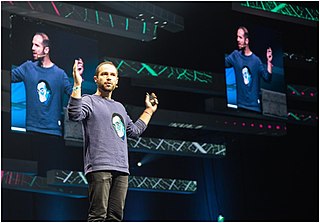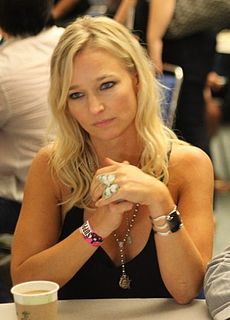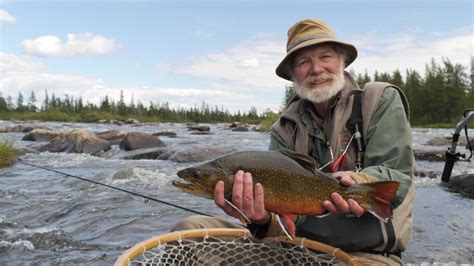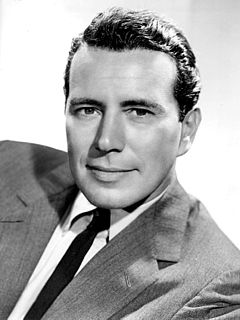A Quote by Stephen Nachmanovitch
If I "try" to play, I fail; if I force the play, I crush it; if I race, I trip. Any time I stiffen or brace myself against some error or problem, the very act of bracing would cause the problem to occur. The only road to strength is vulnerability.
Related Quotes
The problem with a lot of comedy clubs is not that they are a comedy club; it's just the cheesy way they're presenting themselves. That's why a lot of people have a problem with them. If you're a relatively unknown comedian, you can play at a comedy club, you might play to hundreds of people every night. But if you try to make a concert event out of it, and try to play a rock club or something, where you might play to 10 people or no people. And the flipside of that is, that's also a great thing, to play to people who are your fans. Some people are too hard on the comedy clubs.
As a writer, I've always believed that while my work and I myself are embedded in whatever period I am writing about, clearly I am sensitive to the winds that are blowing in the culture. At the same time, I have always felt that the issue was not to deal with the problem in the abstract, but to deal with the people who are in that problem. The emphasis is on the people. The general problem begins to resolve itself even before the play is finished.
I think it's relatively easy to play defense against a team that can only do one thing. Unfortunately, that's not what we're talking about here with Seattle. They have a great running back - they have a great group of running backs - but Lynch obviously is really kind of in a class by himself. The quarterback's a problem, the receivers are a problem, they have a good offensive line.
Revenge tries to solve the problem of vulnerability. If I strike back, I transfer vulnerability from myself to the other. And yet by striking back I produce a world in which my vulnerability to injury is increased by the likelihood of another strike. So it seems as if I'm getting rid of my vulnerability and instead locating it with the other, but actually I'm heightening the vulnerability of everyone and I'm heightening the possibility of violence that happens between us.

